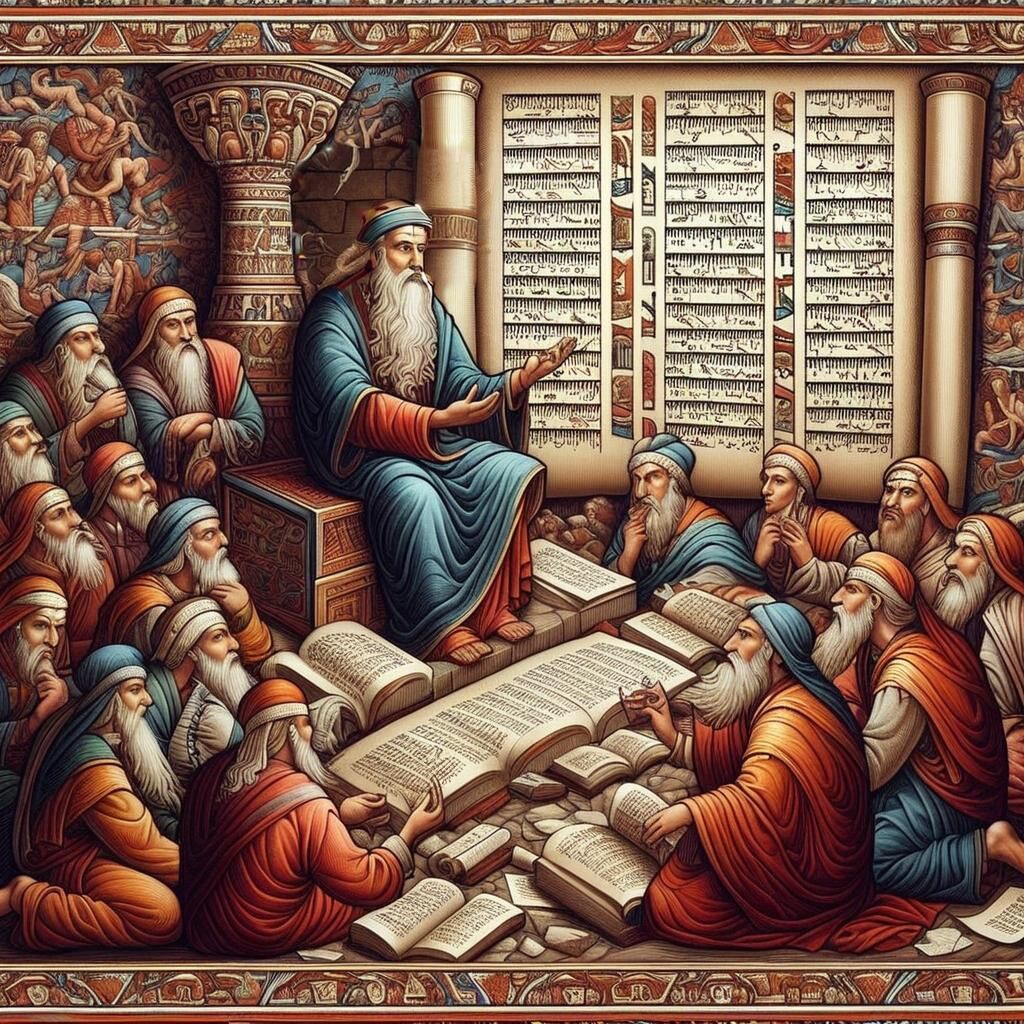Greetings, saints of the Most High! Welcome to another installment of the Messianic Torah Observer. Today, we delve into the intriguing topic of our Melchizedekian Priestly Pedigree, focusing on Jasher’s hidden chronicles.
In Part 3, we explored the theological implications of the Avram-Melchizedek encounter, discussing the dual offices of priesthood and kingship, the blessing conferred upon Avram, the significance of tithing, and the mysterious nature of Melchizedek. We also examined various religious perspectives on Melchizedek, including those from Catholicism, Islam, and Messianic Judaism.
Jewish legend and tradition often identify Shem, Noah’s righteous son, as Avram’s Melchizedek. However, there are several issues with this theory, including the lack of canonical biblical evidence and the improbability of Shem’s lifespan overlapping with Avram’s. Despite these concerns, the book of Jasher perpetuates this connection, presenting a narrative where Shem is indeed Avram’s Melchizedek.
Jasher’s account embellishes the biblical story, referring to Melchizedek as Adonizedek and describing a community meeting with Avram, bearing bread and wine. Interestingly, Jasher omits Melchizedek’s blessing of Yehovah, a curious detail given some ancient rabbinic opinions.
The narrative continues with Shem passing his prophecy school to Eber, his great-grandson, while the Melchizedekian priesthood is conferred upon Avram. This lineage, according to Jasher, includes notable figures like Adam, Enoch, and Noah, culminating in Avram.
However, the Jasher narrative raises questions about the authenticity and accuracy of these accounts. The Melchizedekian priesthood, as described in the Torah, operates outside biological heritage lines and temple sacrificial systems, foreshadowing the Spirit and Truth worship Yeshua spoke of.
Despite the conflicts between Jasher’s and the Torah’s accounts, we can glean significant insights into our Melchizedekian priestly pedigree. Concepts of righteousness, priestly conduct, obedience, and steadfast commitment to the faith form the foundation of our priestly calling. As students of Yahoshua’s Great School of Prophecy, we are in a season of training and preparation for our future roles in the Kingdom of Yehovah.
In conclusion, while I have my reservations about Jasher’s account, it offers valuable lessons about the godly elements that make up our Melchizedekian priestly pedigree. As we continue this series, we will explore these elements further, preparing us to serve as Melchizedekian kings and priests in the coming Kingdom of Yah.
May you be most blessed, fellow saints in training. Let us embrace our calling and prepare for the roles we are destined to fulfill.
The Fall Feasts of Yah–The Day of Atonement–Yom Kippur
The Fall Feasts of Yah and the Torah Observant Disciple of Yeshua As Torah Observant disciples of Yahoshua Messiah we are truly blessed to have the joyous elements of our beloved Faith to keep us focused on the mark of the high calling of Messiah. And as I said...
The Fall Feasts of Yah-Trumpets-Yom Teruah
The Fall Feasts are upon us and the Day of Trumpets (Yom Teruah) has at our doorsteps. What significance do the Fall Feasts and the Day of Trumpets hold for Torah Observant Believers in Messiah? What follows is a brief overview of the Fall Feasts of Yehovah and a...
Tithes and Offerings Related to Torah and Messianics
This week’s Torah Reading touched upon the Firstfruits’ offering and the Tithe. The Firstfruit Offering or Tithe (Dt. 26:1-11) The issue and topic of giving offerings and tithing are always controversial, both within and without our Faith Community. As Torah Observant...
Messianics Engaged in Political and Social Activism
A speaker at a recent prophecy conference denounced apathy in the body of Christ and demanded Christians wake-up from their apathy and engage in political and social activism, so to speak. Given the mixed Faith Communities represented at this conference,...
Torah Portion Re’eh–See–I Set Before You a Blessing and a Curse
Torah Portion Re'eh--(See) I Set Before You a Blessing and a Curse--11:26-16:17 This week's Torah Reading, entitled “Re’eh” or “See—I Set Before You a Blessing and a Curse,” is found in Deuteronomy 11:26-16:17. I found this reading to be rich in...
Torah Portion ‘Ekev–On the Heel Of–Because
This week's Torah Portion (i.e., Reading/Parashat) was entitled, 'Ekev--On the Heel Of--Because. It is found in Deuteronomy 7:12-11:25. [If you follow the Torah Portions or Readings, I invite you to check out my post entitled, "Hebrew Roots and Torah Portions--Are...
Torah-Keeping–When it is Practiced in Sin
This Week's Torah Reading--D'varim This week's Torah Reading was D'varim. A section of it addressed our eventual abandonment of Father's Torah after we were established in the land. As a result of our abandonment of Torah, the land would be overrun by Gentiles and we...
As It Was In The Days of Noah
Do recent advancements in DNA manipulation and Artificial Intelligence portend the return of Yahoshua Messiah? Are they elements of modern day spin-offs to the Days of Noah? Each week it seems, we receive more and more disturbing news about the existential dangers...
Sacred Oaths and Vows–The Wages of Sin–The Spoils of War
In today’s post, I wish to reflect upon elements of this week’s combined Torah Portions entitled Mattot (or Tribes) and Masei (or Journeys). This Portion ends our journeys through the Book of Numbers and sets the stage for our historic and long-awaited conquest of the...
The Red Heifer–Parashah 39–Hukkat–Numbers 19
I pray that you had a meaningful Sabbath Rest. This week's Torah Portion was yet again an amazing journey into the Things and Ways of YHVH that defy anything that humanity could ever imagine. This 39th Portion addresses the "Mystery of the Red Heifer," which is a...

